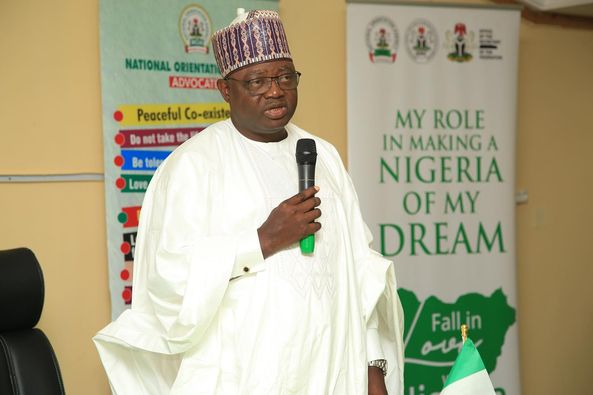The Director-General of the National Orientation Agency (NOA), Lanre Issa-Onilu, has called on Nigerians to develop survival strategies in response to the economic challenges following the removal of the petrol subsidy by President Bola Tinubu’s administration.
Issa-Onilu, a former spokesperson for the ruling All Progressives Congress (APC), argued that reinstating the petrol subsidy, as demanded by #EndBadGovernance protesters, would only worsen poverty.
“Anybody who is making a demand that subsidy removal should be brought back is making an emotional demand, not an economic demand because you have to also prove that if it is brought back, it will solve the issue of poverty; it will not, it will aggravate it,” Issa-Onilu stated.
“So, what we should be doing is: How do we survive in spite of the removal? We need to promote all the efforts of this government to ensure that we survive without that subsidy.”
He acknowledged the existing trust deficit between the government and the populace due to years of broken promises. “It is difficult to talk to a people who have for several years been let down. Nigerians feel let down. The first question they ask you is: ‘Is this another promise that will not be kept?’ So, we must prove to Nigerians that this government is keeping to its promises,” Issa-Onilu added.
On Sunday, President Bola Tinubu firmly rejected calls to reinstate the subsidy on Premium Motor Spirit (PMS), commonly known as petrol. In a nationwide address, the President described the removal of the subsidy as a “painful but necessary” step for economic reform amidst ongoing #EndBadGovernance protests.
Nigeria faces significant energy challenges, with all state-owned refineries non-operational and heavy reliance on imported refined petroleum products. Since the subsidy removal in May 2023, petrol prices have surged from around N200 per litre to approximately N700 per litre, exacerbating hardships for citizens who depend on petrol for transportation and power generation due to erratic electricity supply.
The government’s decision to unify forex windows has led to a dramatic decline in the naira’s value, from $1/N700 to over $1/N1600 on the parallel market. This currency crisis has caused a sharp increase in food and commodity prices, worsening inflation.
Despite claims from oil marketers that the landing cost of imported petrol has exceeded N1,000 per litre while it sells for about N700, suggesting government price subsidies, the state-run NNPC has repeatedly affirmed that the petrol subsidy has been fully removed.
In July, labour leader Joe Ajaero criticised President Tinubu’s proposal to raise the minimum wage to N250,000 in exchange for increasing fuel prices, which was seen as an attempt to reinstate the subsidy regime. Meanwhile, the World Bank and Pinnacle Oil and Gas CEO Robert Dickerman have alleged that the Federal Government is still subsidising petrol, a claim that human rights lawyer Femi Falana has urged the government to clarify urgently.
